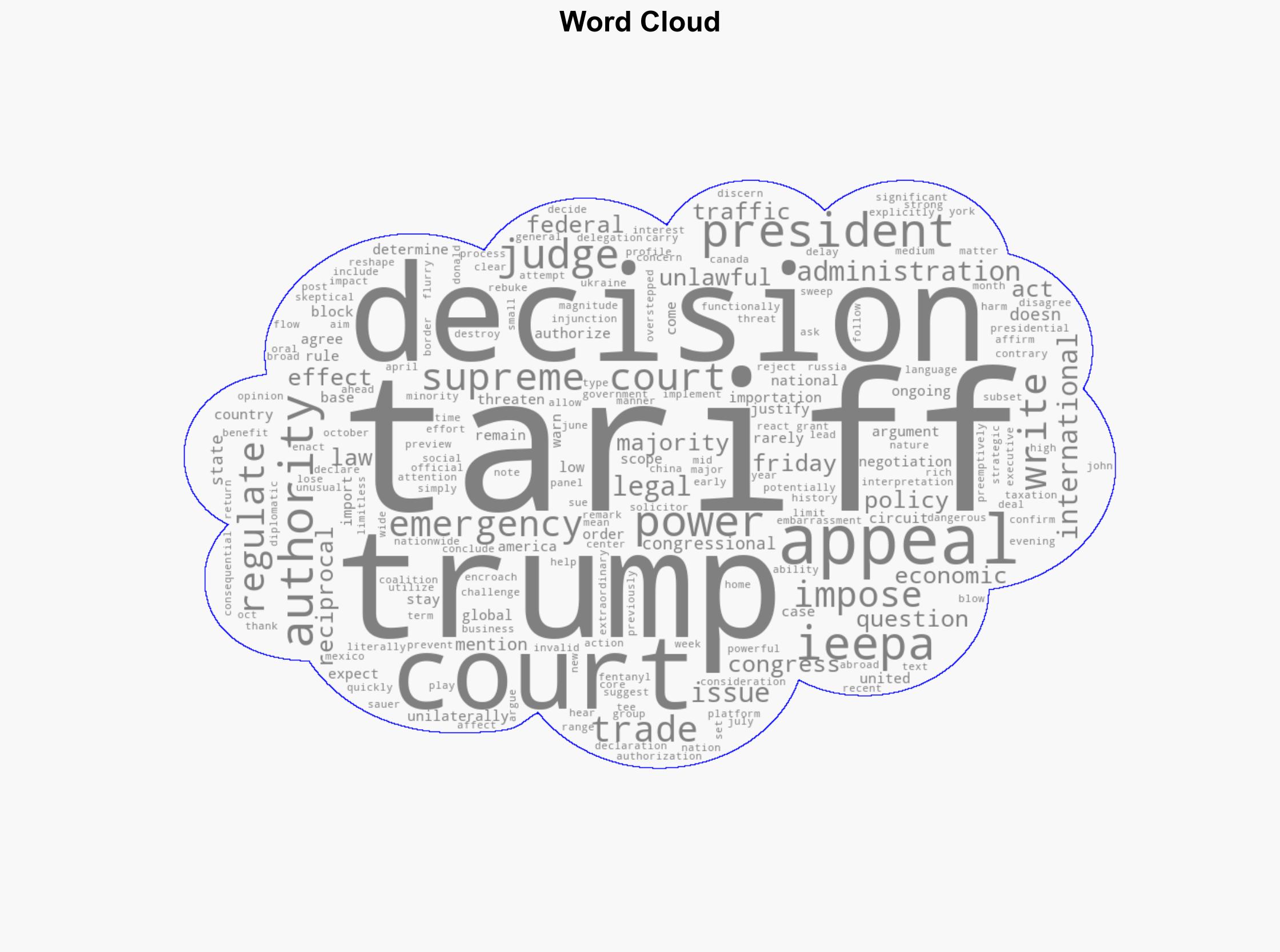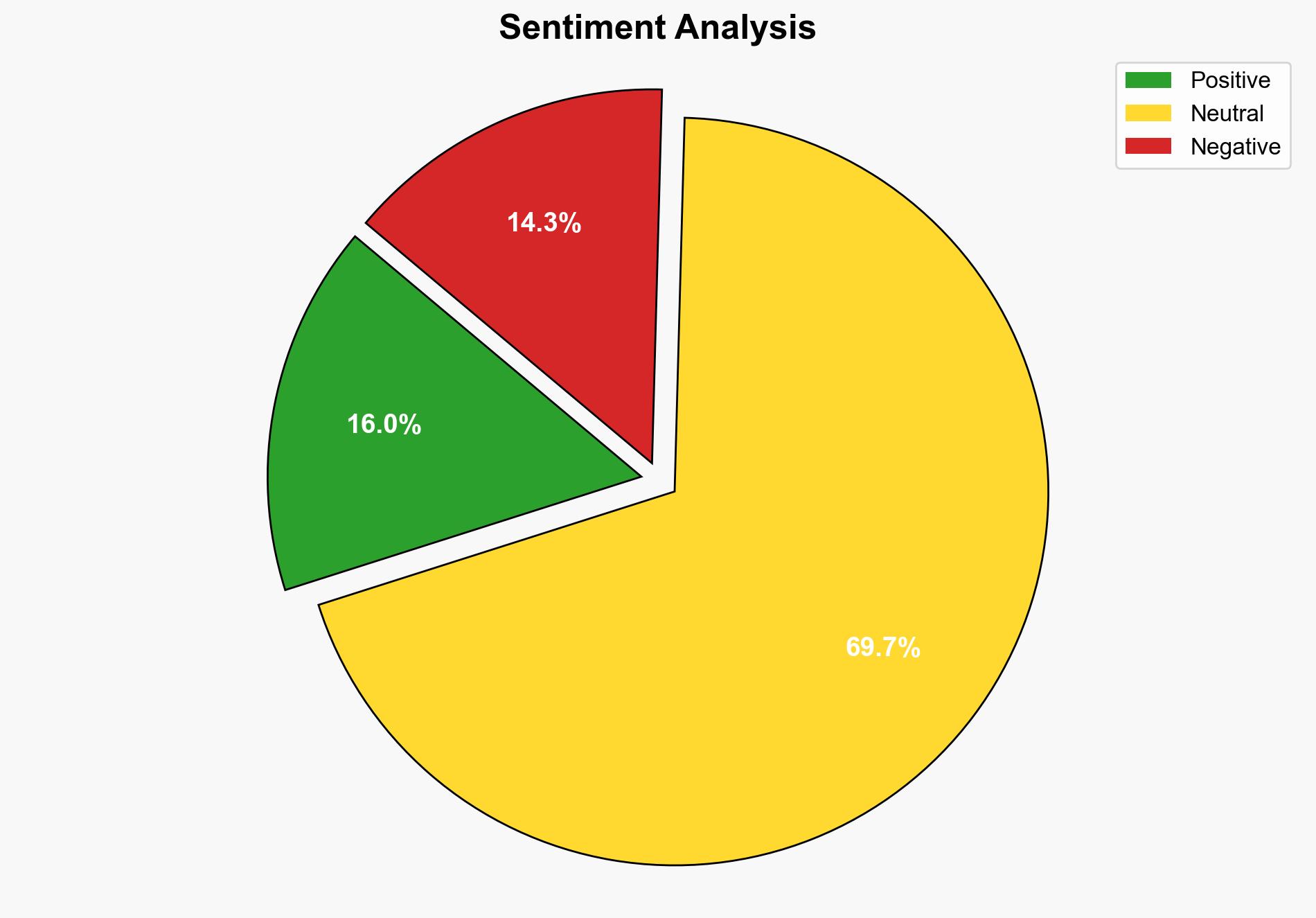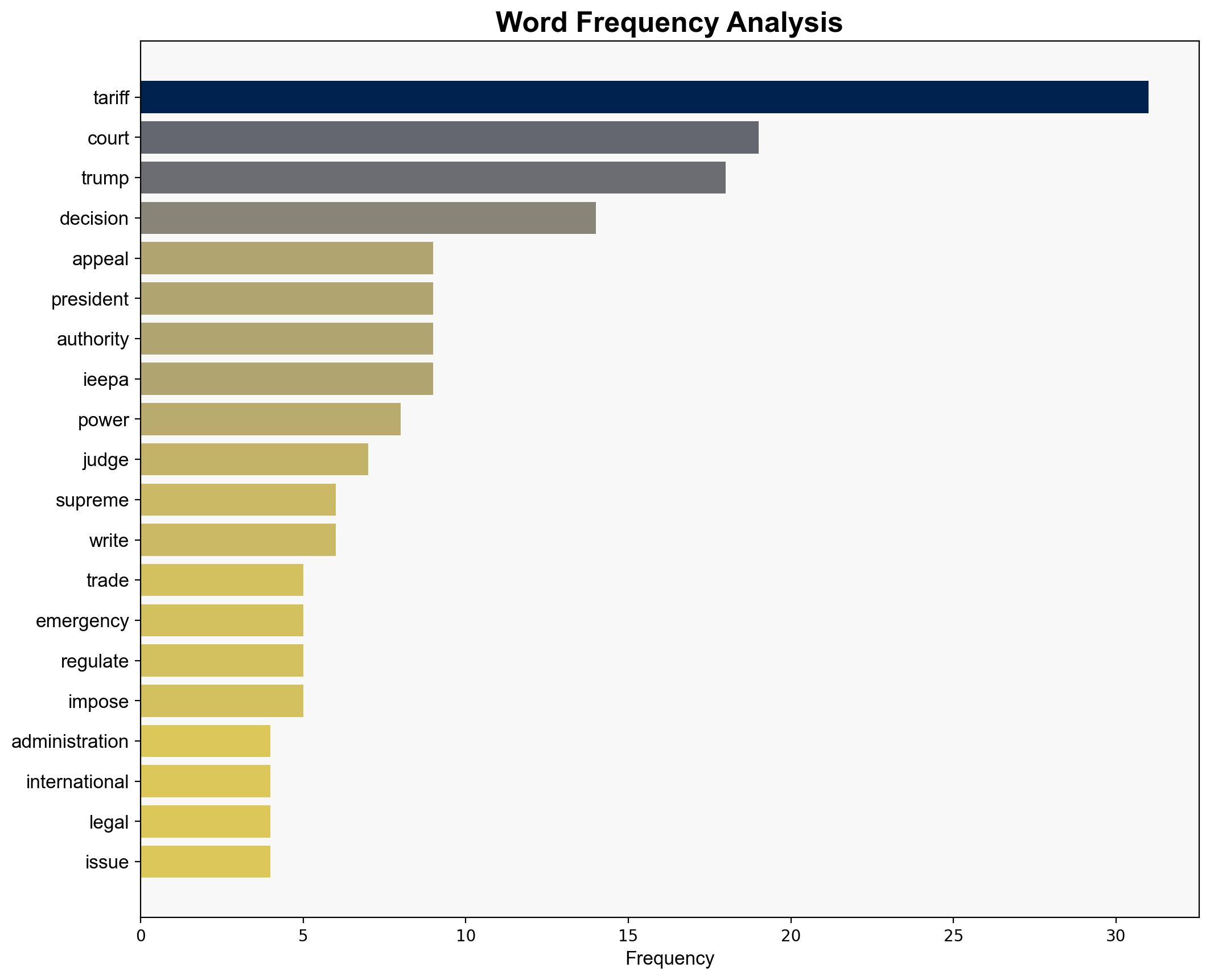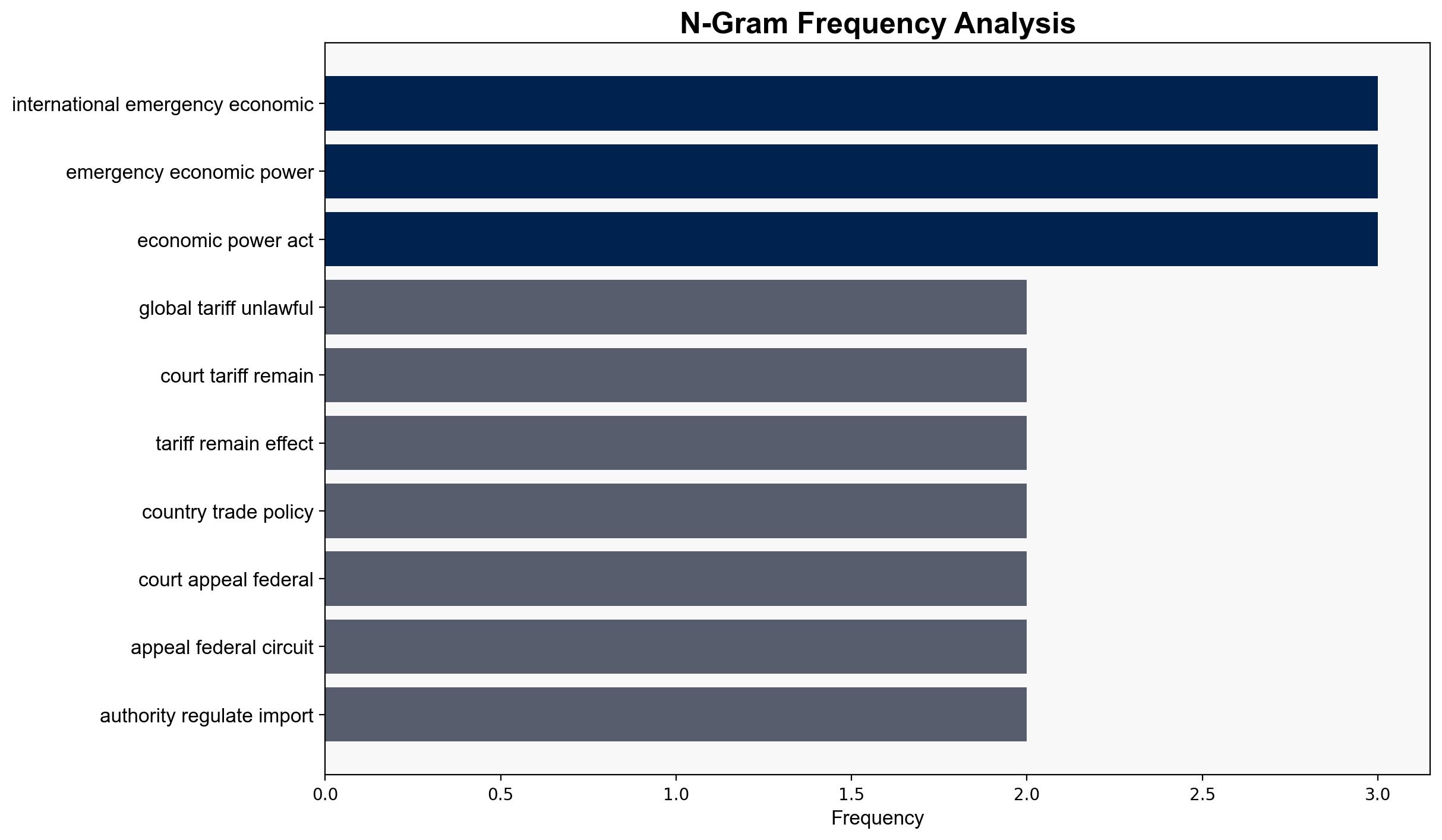Trumps global tariffs are unlawful appeals court says – ABC News
Published on: 2025-08-29
Intelligence Report: Trumps global tariffs are unlawful appeals court says – ABC News
1. BLUF (Bottom Line Up Front)
The federal appeals court ruling against Trump’s global tariffs presents a significant legal challenge to the unilateral trade policies implemented during his administration. The most supported hypothesis is that the Supreme Court will ultimately uphold the lower court’s decision, limiting presidential authority under the International Emergency Economic Powers Act (IEEPA). Confidence level: Moderate. Recommended action: Monitor the legal proceedings closely and prepare for potential shifts in U.S. trade policy.
2. Competing Hypotheses
1. **Hypothesis A**: The Supreme Court will uphold the appeals court ruling, reinforcing the limitation on presidential authority to impose tariffs unilaterally under the IEEPA.
2. **Hypothesis B**: The Supreme Court will overturn the appeals court ruling, affirming broader presidential powers to regulate trade under the IEEPA.
Using the Analysis of Competing Hypotheses (ACH) 2.0, Hypothesis A is better supported due to the existing legal precedent and the appeals court’s detailed reasoning regarding the limits of the IEEPA. Hypothesis B is less supported due to the lack of clear congressional authorization for such sweeping tariff actions.
3. Key Assumptions and Red Flags
– **Assumptions**: It is assumed that the Supreme Court will prioritize legal precedent and statutory interpretation over political considerations. Another assumption is that the IEEPA does not provide unlimited authority for tariff imposition.
– **Red Flags**: Potential bias in interpreting the IEEPA’s scope and the possibility of political influence on judicial decisions. The lack of clear congressional intent regarding tariff authority is a critical gap.
4. Implications and Strategic Risks
The ruling could lead to significant shifts in U.S. trade policy, potentially affecting international relations and economic stability. If the Supreme Court limits presidential tariff powers, it may encourage Congress to assert more control over trade policy, impacting future administrations. Conversely, if the ruling is overturned, it could set a precedent for expanded executive power in economic matters, raising concerns about checks and balances.
5. Recommendations and Outlook
- Monitor the Supreme Court’s docket and prepare for potential policy adjustments based on the outcome.
- Engage with congressional leaders to discuss the implications of the ruling and explore legislative options to clarify trade authority.
- Scenario Projections:
- Best Case: The Supreme Court upholds the ruling, leading to a balanced approach to trade policy.
- Worst Case: The ruling is overturned, resulting in increased executive power and potential trade tensions.
- Most Likely: The Supreme Court upholds the ruling, prompting legislative action to define trade authority.
6. Key Individuals and Entities
– Donald Trump
– U.S. Supreme Court
– Federal Appeals Court
– International Emergency Economic Powers Act (IEEPA)
7. Thematic Tags
national security threats, economic policy, trade relations, judicial review




